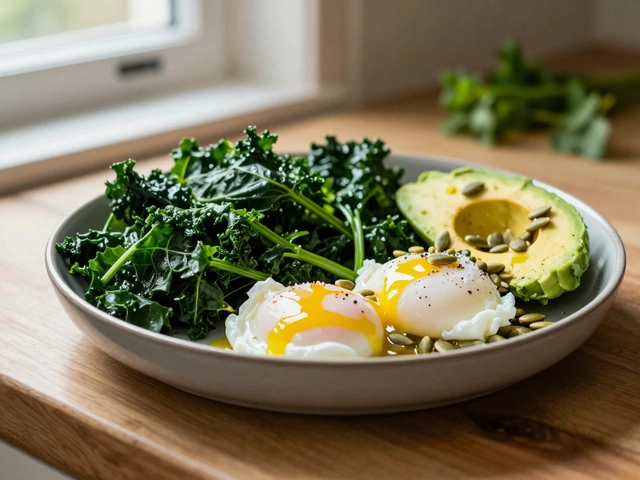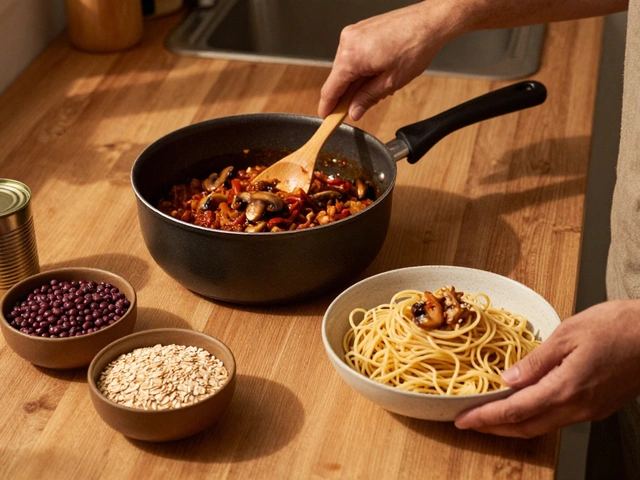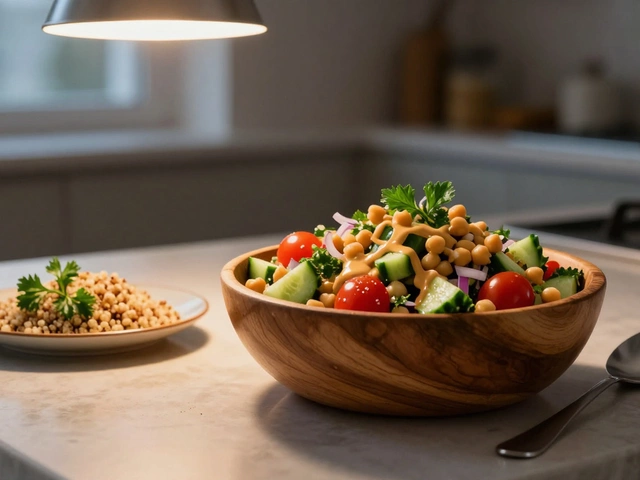Microbiome Basics: How Your Gut Impacts Flavor and Health
Ever notice how some meals leave you light and energized while others make you feel sluggish? That feeling often comes down to the microbes living in your gut. The collection of bacteria, fungi, and other tiny organisms is called the microbiome, and it plays a huge role in digestion, immunity, and even mood.
Your microbiome isn’t fixed; it changes with what you eat. A diet rich in fiber, fermented foods, and the right spices feeds the good bacteria and keeps the bad ones in check. The spices you love in Delhi‑style dishes aren’t just about heat – many of them act like pre‑biotics, giving microbes the fuel they need to thrive.
Here’s a quick way to turn a regular dinner into a gut‑boosting feast: start with a base of cooked lentils or chickpeas, add a splash of yogurt for probiotics, and finish with a blend of cumin, coriander, and turmeric. These ingredients are easy to find in any Worcester supermarket and pack a punch for both flavor and microbiome health.
Want to make the most of your spices? Try toasting whole cumin and coriander seeds before grinding them. The heat releases aromatic oils and makes the pre‑biotic fibers more accessible to your gut bacteria. A pinch of asafoetida (hing) can also calm digestion, especially when you’re cooking legume‑heavy dishes.
Spices That Feed Your Friendly Bacteria
Garlic, ginger, and turmeric are the star trio for gut health. Garlic contains inulin, a fiber that the microbiome loves. Ginger speeds up emptying of the stomach, reducing bloating. Turmeric’s curcumin has anti‑inflammatory properties that help keep the gut lining smooth. Sprinkle these into stir‑fries, curries, or even a simple lentil soup for a daily boost.
Easy Microbiome‑Friendly Meal in Under 30 Minutes
Try this quick “Spiced Chickpea & Yogurt Bowl.” Start by heating a tablespoon of oil, toss in half a teaspoon each of cumin, coriander, and turmeric, and add a can of drained chickpeas. Cook for five minutes, then stir in a cup of plain yogurt, a squeeze of lemon, and a handful of fresh cilantro. Serve over brown rice or quinoa. You’ve got protein, fiber, probiotics, and gut‑loving spices—all in one bowl.
Stay consistent by adding a fermented side like sauerkraut, kimchi, or homemade pickles a few times a week. Even a small spoonful each day can keep your microbiome balanced. And remember, hydration matters—drink plenty of water to help move fiber through your system.
Bottom line: you don’t need a costly supplement to support your gut. Simple changes—choosing the right spices, adding fermented foods, and eating more plant‑based fibers—can transform your microbiome. Next time you prep a Delhi‑style dish, think about how each ingredient feeds the bacteria inside you. Your stomach will thank you, and the flavors will taste even better.

What Happens to Your Gut When You Stop Eating Meat?
by Landon Weathers / 20 Jun 2025Curious about your gut if you ditch meat? This article uncovers the real changes your gut goes through after going vegetarian. It covers how your digestion, gut bacteria, and even your bathroom habits can shift. You'll get science-backed facts, plus easy tips to keep your gut happy on a meat-free diet. Perfect for anyone thinking about making the switch or just wanting to understand their insides a bit better.




